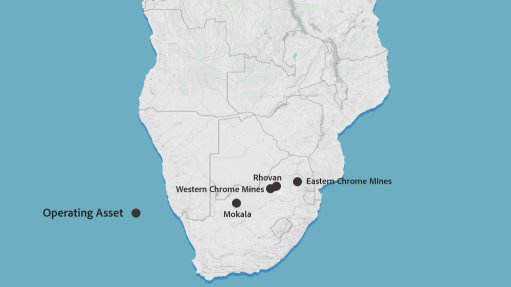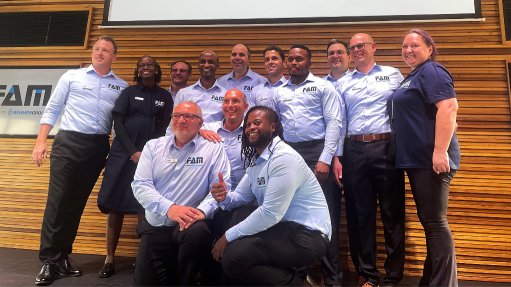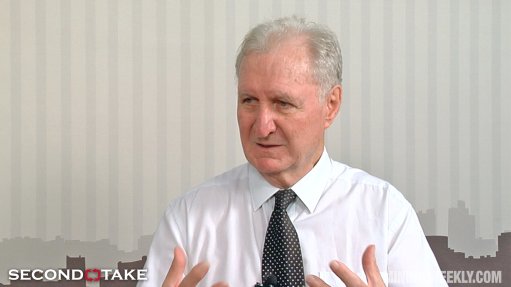Cause versus effect
The fabricated argument that the energy transition is to blame for loadshedding in South Africa, rather than the dismal performance of Eskom’s coal and nuclear plants, is a social- media staple these days and is increasingly making headway with some political, business and labour leaders.
It’s a storyline that is not unique to South Africa.
In fact, International Energy Agency executive director Fatih Birol felt compelled recently to write an opinion piece for the Financial Times specifically to tackle what he called the “many falsehoods” being spread about the prevailing energy crisis.
In the piece, Birol described the suggestion that the global energy crisis was a clean energy crisis as a “mistaken idea”.
Policymakers, he noted, were not complaining to him about relying too much on clean energy, but were rather expressing regret at not having moved faster.
“When people misleadingly blame clean energy and climate policies for today’s global energy crisis, they are, intentionally or not, moving the spotlight away from the real culprits – the gas supply crunch and Russia,” he wrote.
“More low-carbon energy would have helped ease the crisis – and a faster transition from fossil fuels towards clean energy represents the best way out of it.”
A similar argument can certainly be made about South Africa and its loadshedding crisis.
It is simply misleading to suggest that the reason is in any way linked to the country having moved too quickly to integrate variable renewables.
As outlined previously in this column, energy modelling by Meridian Economics has demonstrated that had an additional 5 GW of wind and solar power been built – the equivalent of only two renewables procurement rounds – 96.5% of the power cuts implemented in 2021 would have been eliminated.
Instead, at the peak of Eskom’s State capture, the leadership effectively derailed the energy transition when they defied government policy and refused to contract with those independent power producers whose projects had been legally procured.
The upshot was a destructive seven-year interruption to the injection of the energy that was needed to close a fast-widening supply-demand gap.
To be clear, that gap is the result of repeated breakdowns across the old coal fleet, which has simply been run too hard for too long and cannot be properly repaired in a context where only limited system relief has arisen from Eskom’s massively delayed and poorly executed new-build programme, let alone the actively disrupted renewables programme.
Such a system-level view also fails to take account of the destructive consequences of corruption, which has penetrated some power stations to the point where criminal elements are willing to engage in scorched-earth-type sabotage as their nefarious networks come under pressure. Nor does it adequately describe the damage caused by a skills flight and Eskom’s highly problematic industrial- relations management.
What a system-level view does dismantle, however, is any argument that South Africa has been too aggressive in pursuing the energy transition.
Those who make such assertions are simply confusing cause and effect.
Article Enquiry
Email Article
Save Article
Feedback
To advertise email advertising@creamermedia.co.za or click here
Announcements
What's On
Subscribe to improve your user experience...
Option 1 (equivalent of R125 a month):
Receive a weekly copy of Creamer Media's Engineering News & Mining Weekly magazine
(print copy for those in South Africa and e-magazine for those outside of South Africa)
Receive daily email newsletters
Access to full search results
Access archive of magazine back copies
Access to Projects in Progress
Access to ONE Research Report of your choice in PDF format
Option 2 (equivalent of R375 a month):
All benefits from Option 1
PLUS
Access to Creamer Media's Research Channel Africa for ALL Research Reports, in PDF format, on various industrial and mining sectors
including Electricity; Water; Energy Transition; Hydrogen; Roads, Rail and Ports; Coal; Gold; Platinum; Battery Metals; etc.
Already a subscriber?
Forgotten your password?
Receive weekly copy of Creamer Media's Engineering News & Mining Weekly magazine (print copy for those in South Africa and e-magazine for those outside of South Africa)
➕
Recieve daily email newsletters
➕
Access to full search results
➕
Access archive of magazine back copies
➕
Access to Projects in Progress
➕
Access to ONE Research Report of your choice in PDF format
RESEARCH CHANNEL AFRICA
R4500 (equivalent of R375 a month)
SUBSCRIBEAll benefits from Option 1
➕
Access to Creamer Media's Research Channel Africa for ALL Research Reports on various industrial and mining sectors, in PDF format, including on:
Electricity
➕
Water
➕
Energy Transition
➕
Hydrogen
➕
Roads, Rail and Ports
➕
Coal
➕
Gold
➕
Platinum
➕
Battery Metals
➕
etc.
Receive all benefits from Option 1 or Option 2 delivered to numerous people at your company
➕
Multiple User names and Passwords for simultaneous log-ins
➕
Intranet integration access to all in your organisation





















